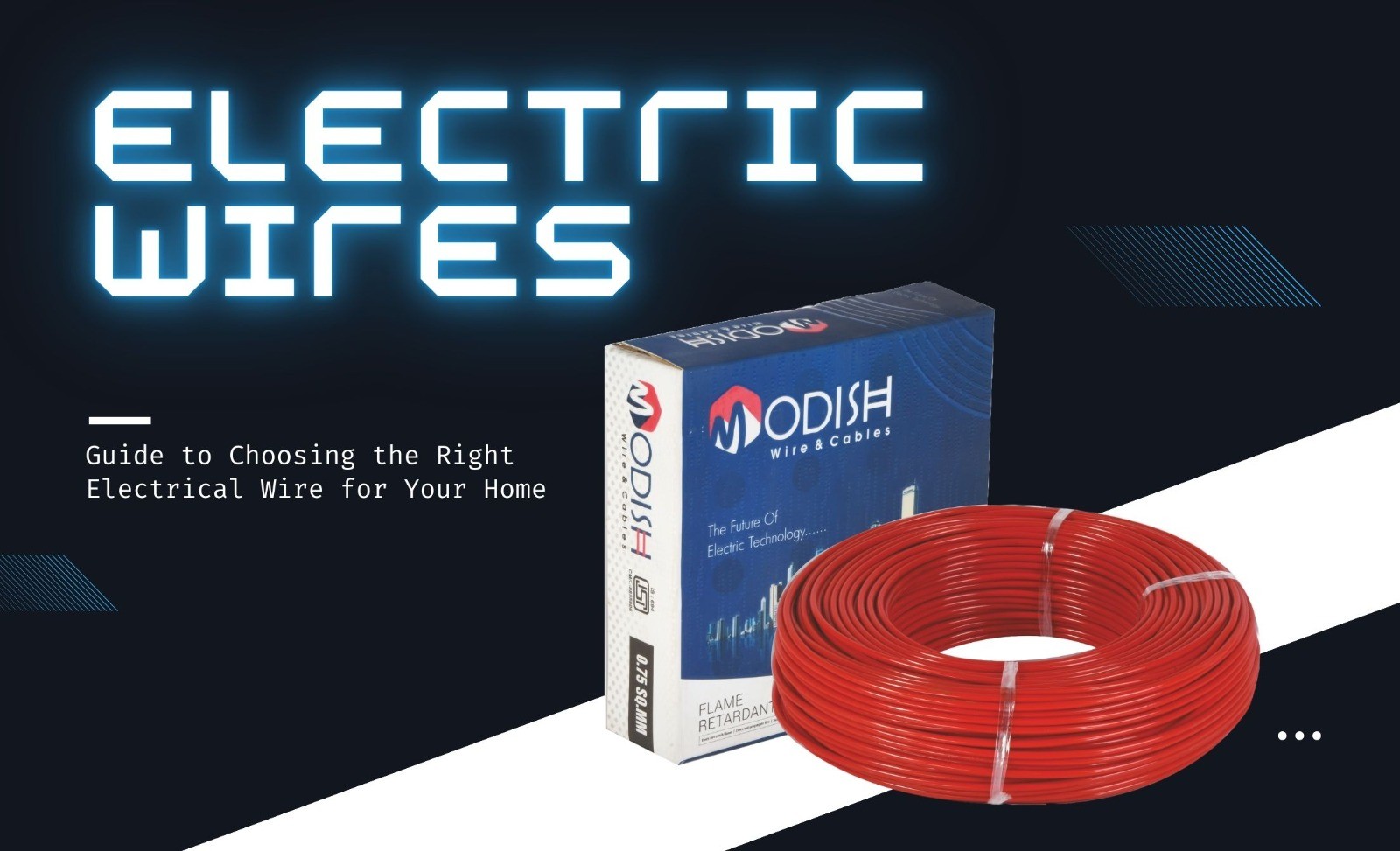Right Electrical Wire for Your Home
Choosing the Right Electrical Wire is crucial in setting up a safe and energy-efficient electrical system in your home. With so many options available, selecting the best electric wire for specific uses can be overwhelming. This guide, brought to you by a leading home and lifestyle magazine, will help you navigate essential factors and make informed decisions when choosing cables and wires for your home.
Why Choosing the Right Electric Wire Matters
Electrical wires essentially form the nerves of your domestic electric system. Usage of a nonsuit able wire can vouchsafe to short-circuit, powering of ill energy load, or starting a fire. When the ideal electric wire is installed may it be expensive since it is cheap to maintain the electrical setup is safe, efficient, and long-lasting.
Factors to Consider When Choosing the Right Electrical Wires
1. Wire Type

• Copper vs. Aluminum
Copper is proven best as an electric wire for its very high conductivity of electricity plus durability as contrasted with the relatively cheap aluminum wires which may require some additional care for prolonged use.
• Solid vs. Stranded
Solid wires are useful for more stationary installations, while stranded wires are conducive to more flexible ones.
2. Gauge Wire
Gauge Wire refers to the wire’s diameter. A lesser number of gauges implies thicker wires, which can carry high currents. Thus, the wire gauge should be compatible with the size of the electrical load to avoid overheating.
3. Insulation Material
The insulation material governs the wire’s heat, water, and chemical resistance. PVC and XLPE are some common insulating materials used for electric wires and cables in a house.
4. Voltage Rating
Finally, ensure that the wire’s voltage rating agrees with your residential requirements to prevent overloading and harm.
5. Brand and Certification
Always choose cables and wires from reputable brands that comply with safety standards. Look for certifications like UL, ISO, or BIS to guarantee quality.
Popular Types of Electrical Wiring at Homes
1. Non-Metallic (NM) Cables
This is the mostly utilized kind of domestic wiring all around. NM cables are adaptable and easy to attach.
2. Underground Feeder (UF) Cable
May be preferable for the outside of an underground type of installation since it is water-resistant.
3. Coaxial Cable
Certainly tops the list in the world of television and Internet facilities.
4. Armored Cable
Provides added protection in high-risk scenarios and is a durable alternative in extreme-duty applications.
Tips for Buying the Best Electric Wire
Select the best electric wire for your needs by doing the following:
• Be clear about consulting with the electrician certified, so you can understand the specific requirements you need concerning the wiring. A professional can guide you on the desirable gauge and insulation type.
• If possible, choose a wire that has a marginally higher load rate compared to what you would typically require. This guarantees that the system is kept to meet needs in case you bring in more appliances or rooms.
• Choose your electrical wire suppliers wisely. Find a good retailer to be on guard with copied brands that may cause damage to your electrical application or system.
• Consider the best wire insulation to ensure heat resistance, imperviousness to humidity, and other wear-tearing impulses. Adequate insulation decreases the potential danger and prolongs the life of the wire.
• Differentiate between brands and consult with customer reviews to identify the most reliable in the market. Spending a little extra money on quality cables would save you from being ripped off in the long run.
• Overall, the choice of electric wire must be just fine for a home setting and proper containment of your digital design and program.
Maintenance and Safety Tips
• Regularly inspect your electric system for signs of wear and tear. Look out for any warnings of harm, like frayed or burn marks on the wires, or shaky connections.
• Put in place another wire at once if a damaged or frayed wire is seen, to avert a possible incident. Waiting to carry out a fix can usually result in a short circuit that will, in time, spark and catch fire.
• Don’t push too hard and overload the circuits; use cables of appropriate capacity instead. Overloading your electric system also forces the wires and down all your devices.
• Make sure electricians of qualifications install the system. Doing this correctly ensures minimum risk in configuration by safety principles.
• You should have surge protectors for protection against instances of excessive electricity flow and damage.
• Therefore, consider bringing in servicemen on an emergency basis for routine checks to prevent unexpected snags that can later go on to hurt your budget, as well as your health and the safety of your home.
• Always make sure you purchase the precise standard wire corresponding to the wattage in your household system.
Follow Modish Home Appliances on Instagram
Good in-portal-electrical wires in order to illuminate the home and make it more charming. Now come on and reward your home with electrifying products available at modishhomeappliances.
Conclusion
Choosing an electric wire for your house means understanding what you expect from the wire in terms of safety. Whether it’s for lighting purposes, appliances, or outdoor installations, take your time to pick it to save you some bucks, in addition to peace of mind. Always consult professionals to ensure appropriate choices and safe products are used for your home.
Representatives from Modish Home Appliances on Instagram will now be your source for help and to get you updated on this matter.


